
17 minute read
A message from the CEO of Community Chest
HOW DID this massive ship called South Africa go drifting onto the rocks of unkindness? Why does it feel like we are marooned in a sea of angry, violent sewage?
How is it possible that in 1994 we stood side by side in awe to birth a great country, and in 2020 we stand on opposite sides, close to destroying the country we birthed?
Advertisement
My wife and I take regular walks across various parts of Cape Town and the country whenever we have spare time. We are regular greeters of fellow walkers. We often notice how some walkers choose not to greet. The kindness of a greeting is the entry level to what builds a great country.
Kindness is the pathway that takes us to the country we always imagined we would live in one day. The pathway consists of cobblestones called generosity, forgiveness, trust and the joy of believing the best of one another.
I have been shown kindness by so many people in my life: the teacher at school who took me aside and gave me a horribly straight talk about my putrid performance, and ended it with “I believe in you – and always know I won’t give up on you”. No one had ever said that to me.
I made sure he never regretted believing in me.
Kindness is seeing yourself in the other and being who the other would want you to be. It is paying for an extra cup of coffee and telling the barista to give it to the next person who might need it but can’t afford it. It is standing in line in a supermarket and paying for the bread and tin of fish that the person in front of you is buying.
It is taking every grain of soil of this country and making a pledge that it will never experience our anger, our violence or our abuse.
The power of kindness moves us away from the rotten sewage of abuse and violence.
We must all be courageous enough to resist caving in to fear and anger. One step of kindness heals far more wounds than many marathons of anger. It is how we set the kindness free in others – by being to them who we expect them to be to us.
I want to live in a country filled with generous greeters practising brave kindness.
That’s my kind of country.
Set the kindness free in others
LORENZO DAVIDS
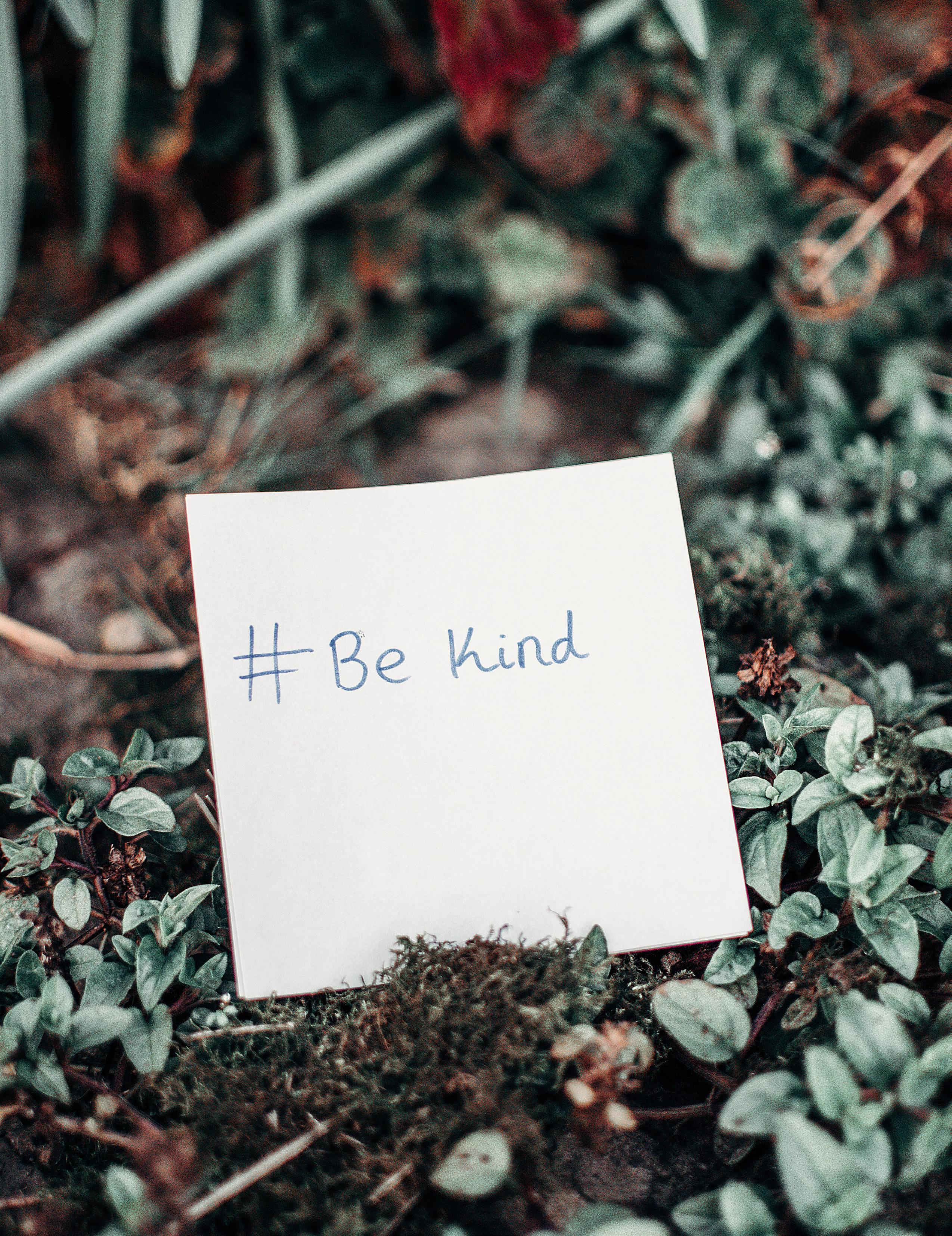
ON JULY 18, South Africans celebrated Nelson Mandela’s birthday with acts of charity and selflessness. Mandela Day is held annually on July 18 and is known as 67 Minutes for Mandela Day.
It’s not just South Africans who mark the occasion; people across the world partake in this day by doing something good, kind and thoughtful for at least 67 minutes. This year, these acts of kindness were even more important than ever during the Covid-19 pandemic.
Communities across the world are affected by the spread of Covid-19, which has hit every economy, causing new social and economic challenges and exacerbating old ones.
During this time, in which we focus on solidarity and inclusion, the challenges of the coronavirus pandemic makes this an appropriate chance also to honour our selfless and dedicated heroes and heroines.
Mother Teresa once said: “We cannot do great things on this Earth; only small things with great love.” Kindness is the willingness and capacity to have a positive impact on others through extending yourself in a way that elevates another human being.
Ibrahim Abdullahi Muhammad, in The Role of Kindness in Making Your Life and the World a Better Place, says the tiniest act of kindness makes the greatest benefit on individuals, groups and nations. “However, practising kindness becomes very scarce in contemporary times. People tend to focus more on themselves, family and children. Many fail to comprehend that kindness to others also means kindness to themselves, family, and children.
“Specifically, our findings have confirmed that kindness to others is the greatest technique that can be applied towards solving contemporary challenges. Concurrently, we found that kindness assists in extending a person’s positive actions to improve others’ lives unconditionally. It benefits both the giver and the receiver to become a happier, healthier and optimistic society, and these types of people tend to perform and achieve higher.”
Why do random acts of kindness increase a person’s sense of happiness? Because kindness can promote gratitude. You are kind to others in need; having that awareness then heightens the sense of your own good fortune. Kindness promotes empathy and compassion; which in turn leads to a sense of interconnectedness with others.
Researcher Barbara Fredrickson had an interesting viewpoint – that kindness, specifically loving kindness, moved one out of the selfish realm. Stated differently, it takes you off the hedonic treadmill. Compassion and kindness also reduce stress, boost our immune systems and help reduce negative emotions such as anger, anxiety and depression.
A study titled Do Unto Others or Treat Yourself? The Effects of Prosocial and Self-Focused Behavior on Psychological Flourishing, looked into the feeling of acts of kindness. Researchers asked people to either perform acts of kindness for other people for four
How kindness can impact you
Viwe Ndongeni-Ntlebi

weeks, such as allowing a stranger to share their umbrella in the rain, or to perform kind acts for themselves for four weeks, such as going shopping and buying themselves a little gift. At the start and end of the study, the researchers measured the participants’ level of psychological flourishing, made up of emotional, psychological and social well-being.
By the end of the study, those who had performed kind acts for others had higher levels of psychological flourishing compared to those who acted kindly towards themselves. Benevolent acts also led to higher levels of positive emotions. In

short, demonstrating altruism not only benefits others but makes us feel better ourselves.
Clinical psychologist Jo Lamble explains how carrying out random acts of kindness will make you happy. “Research tells us that having a strong sense of meaning and giving to others is the best way to find happiness. Being kind lowers our stress levels, which means less cortisol running through our system, lower blood pressure, better sleep and stronger immune systems”
Forget fame or fortune , Lamble says: “If you truly want health and happiness, try being altruistic. It’s a win-win situation. Helping out a friend or being kind to a stranger makes them feel good and you feel even better.”
If you still need a reason to participate in the 67 minutes of Mandela Day, do it because of your well-being and how it could impact you positively. When kindness is authentically given and received, it lifts the well-being and mood of everyone involved. There’s no downside or side effect of positive feelings. Kindness is good.
Terry van der Walt
WISE leaders, religious and cultural scholars and most individuals understand that giving and being kind are foundations on which our communities are built.
The internet is full of quotes and memes on kindness, and the importance of giving, without any expectation of reward or glory.
People who have first-hand exposure to the difficulties experienced by poor or marginalised communities know that it sometimes seems too great a challenge to make a difference in the lives of those in need.
Covid-19 has exposed the fault lines that exist in our country and added to the misery of those without jobs, shelter, safety or decent education. But it has also given us a chance to confront these challenges, and be inspired to find creative solutions to them. One step at a time.
This is what the late Princess Diana said about kindness: “Carry out a random act of kindness, with no expectation of reward, safe in the knowledge that one day someone might do the same for you.”
The late Nelson Mandela said: “A good head and a good heart are always a formidable combination.”
Archbishop Emeritus Desmond Tutu said: “Do your little bit of good where you are; it’s those little bits of good put together that overwhelm the world.”
Former US First Lady Michelle Obama summed it up in this quote: “No matter what, you give everybody a fair shake, and when somebody needs a hand, you offer yours.” Over the past few months South Africans have rallied together to help those less fortunate than themselves, whether through giving cash or donations of food, clothing or blankets, or simply by being more kind or considerate in their interactions with fellow South Africans who are trying to navigate their way through the pandemic.
Mahatma Gandhi was a religious man, but he had this to say about kindness: “The simplest acts of kindness are by far more powerful than a thousand heads bowing in prayer.”
There is much to do, so many organisations that are working against the clock to provide help to those in financial stress who worry how they will survive and where their next meal will come from.
You CAN make a difference As Madiba once said: “It always seems impossible, until it is done.”
And those who are already playing their part to help others, take a bow, and remember these words from American poet and civil rights activist Maya Angelou: “My wish for you is that you continue. Continue to be who and how you are, to astonish a mean world with your acts of kindness.”
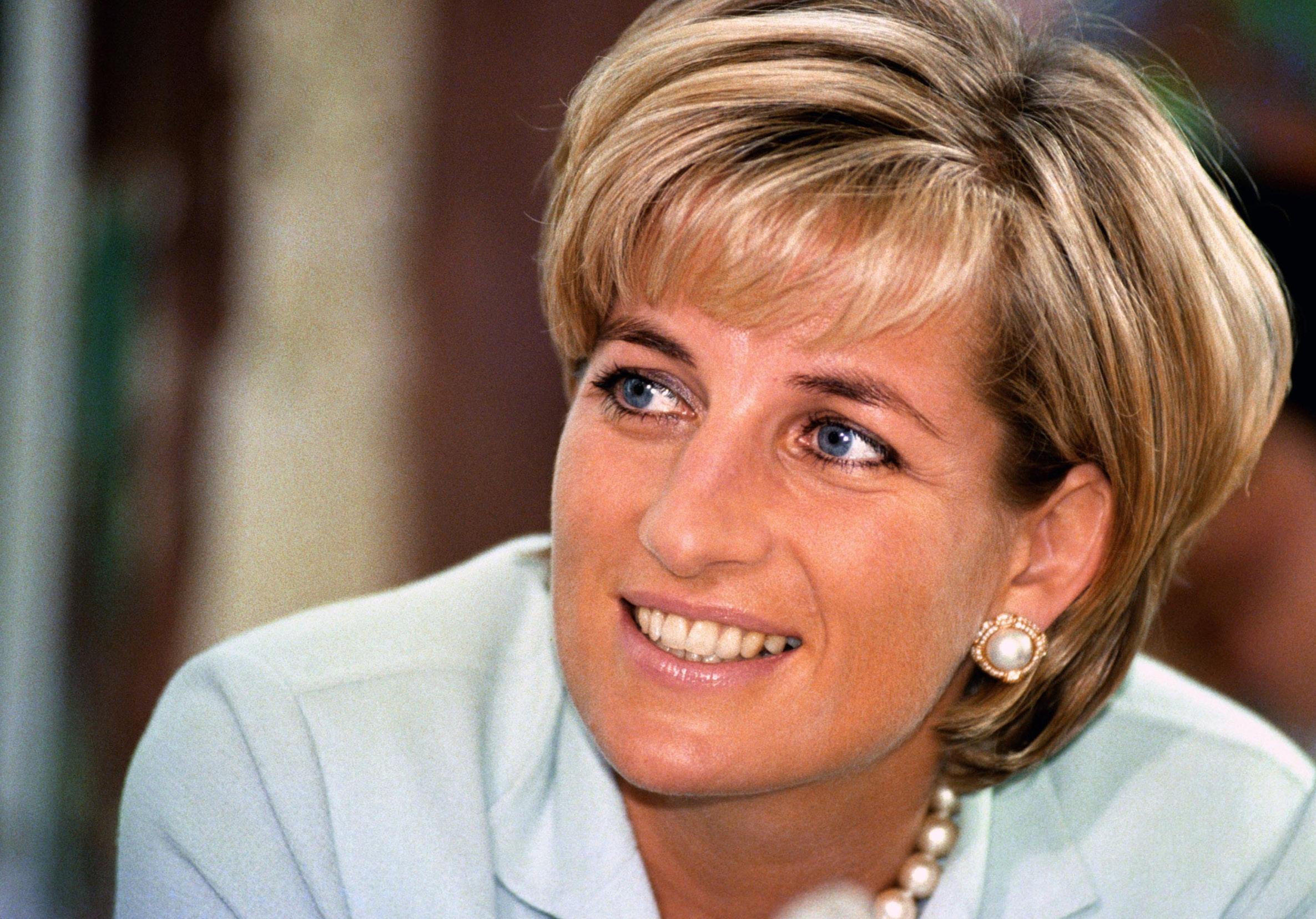
PRINCESS DIANA
Carry out a random act of kindness, with no expectation of reward, safe in the knowledge that one day someone might do the same for you.
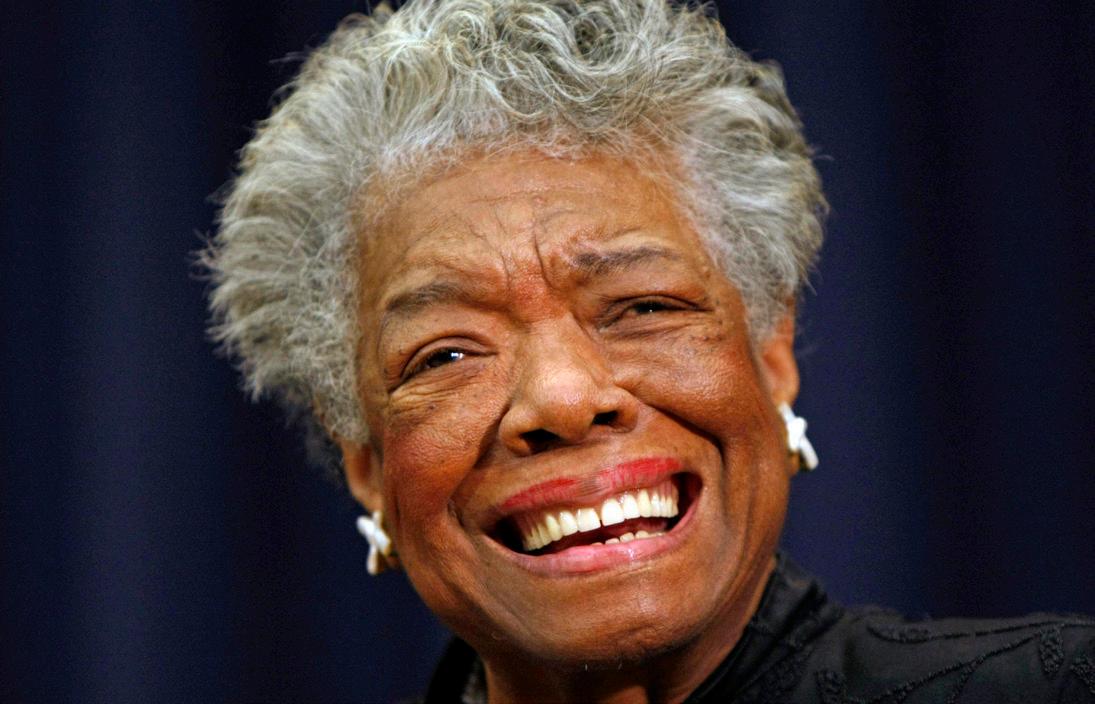
MAYA ANGELOU
My wish for you is that you continue. Continue to be who and how you are, to astonish a mean world with your acts of kindness.
FOR almost eight years, humanitarian activist and the brains behind one of the fastest growing campaigns, Richard Mabaso, has barely spent time with his family during Mandela month.
For Mabaso, July had meant extra time on the road or the mountain, doing what his foundation purported to do – raise awareness and funds in support of menstrual hygiene, through the Trek4Mandela Expedition.
But Mabaso is not resting on his laurels. The campaign to provide every girl with sanitary towels goes on.
Caring4Girls in 2012 was initiated when Mabuso overheard a conversation between his mother and niece about menstruation.
He realised the fear and lack of understanding was real, and existed in his rural village, Luphisi, in Mpumalanga, too.
In South Africa, it is estimated that about 3.7 million women and girls are unable to afford sanitary pads.
Some of them use rags, socks or paper, and often lack access to clean water and private toilet facilities.
Research by the UN shows that 1 in 10 girls in Africa miss school during menstruation.
As Mandela Day was nearing at the time, Mabaso approached his close friend, mountaineer Sibusiso Vilane to join him to climb Mount Kilimanjaro for Mandela Day and raise funds to provide menstrual hygiene support to young girls. Thus, Trek4Mandela was born.
In the past nine years, Caring4Girls has had support from celebrity Lesego, sports and media personality Letshego Zulu, actor Clement Mabosa, and former public protector Thuli Madonsela, among others.
“The Imbumba Foundation, through our Caring4Girls Programme, has been able to provide over 1 million girls with sanitary protection since 2012, bridging the gap of the ‘period poverty”, Mabaso said.
This year the Kilimanjaro expedition launched “67 Pledges for Mandela Day” and wanted to address menstrual hygiene, education and food security.
The aim was to reach more than 67 000 girls who have not benefited from the #caring4Girls programme.
With a R10 contribution, through purchasing a pack of sanitary towels at Dischem Pharmacies, a donation can be made to #caring4girls through the #MillionComforts campaign.
“Our people have continuously demonstrated the spirit of togetherness and so we call upon them, to once again, help us to inspire hope as we live through these trying times and try to shape a positive narrative that will see us through this period and beyond,” he said.
Ain’t no mountain high enough to helping

Viwe Ndongeni-Ntlebi
RICHARD MABASO
Our people have continuously demonstrated the spirit of togetherness and so we call upon them, to once again, help us to inspire hope as we live through these trying times and try to shape a positive narrative that will see us through this period and beyond.
Over the years, Mandela Day has come to mean different things to different people and we asked children what the day and kindness means to them
Be like Tata – taketime to be kind

MATTHEW MURPHY, 4
Mandela Day: Tata Madiba’s Birthday! Kindness is being caring and giving your toys and clothes that you don’t need or use to someone who doesn’t have any.
ASONELE MSINDWANA, 13
Mandela Day means spending your day helping your community by donating food and helping homeless people, poor children with clothes and toys for them to play with. Kindness means showing love to others by doing something wonderful or good for them Kindness is not limited to donating things to others, it also means supporting and caring for others.
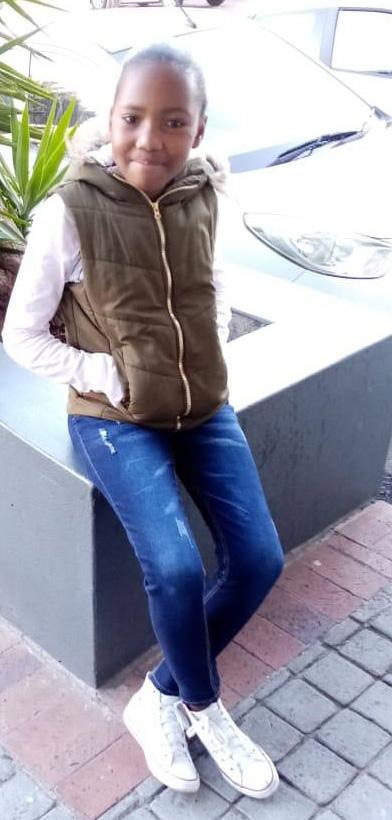

MIHLE SICAM, 12
Mandela Day to me is remembering uTata Madiba and how he fought for 67 years for democracy. It’s celebrating that we all have the ability to make a change in our world. Kindness is being polite to someone, showing them love and generosity.

JOSHUA JARA, 7
Mandela Day: Mandela Day is Tata Mandela. Helping Mama and Daddy with cleaning and helping my school friends.
‘‘ UMINATHI TSHAKA, 7
Mandela Day means collecting all the nice toys I don’t use and donating them to charity. Plus, I’m turning 8 on Mandela Day. Kindness means being nice to people and respecting everyone.

REBEKAH ADAMS, 9
Mandela Day means a lot to me, it shows that we must care that Nelson Mandela never stopped fighting for us. Kindness means that being rude is not an answer, people shouldn’t bully others and we should always be kind as much as we can.
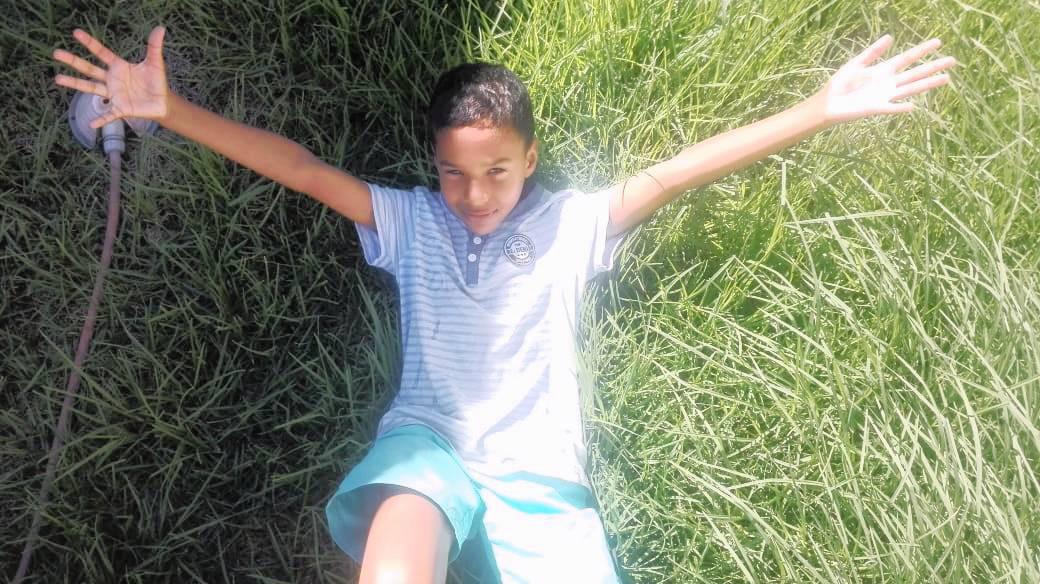
ISA ABRAHAMS, 11
Mandela Day means keeping Mandela’s memory alive and to do things in the community. Kindness means sharing.

‘‘ MIA-MAE VAN VREDE, 14
Mandela Day to me is the celebration of the amazing things Nelson Mandela has done for all of us and what he went through to keep his country thriving. Mandela was a very brave, honourable, kind-hearted man. More of us should strive to have at least two of those things. Kindness means doing something or giving someone something with a joyful heart. It can also be offering your service to help out at an old-aged home or a soup kitchen in your community. Being kind is also like being polite. Even just smiling to someone who is looking down is an act of kindness. A phrase I use often says before you do or say something you need to ask yourself will this be honest, kind and true.
Driving Madiba’s service message
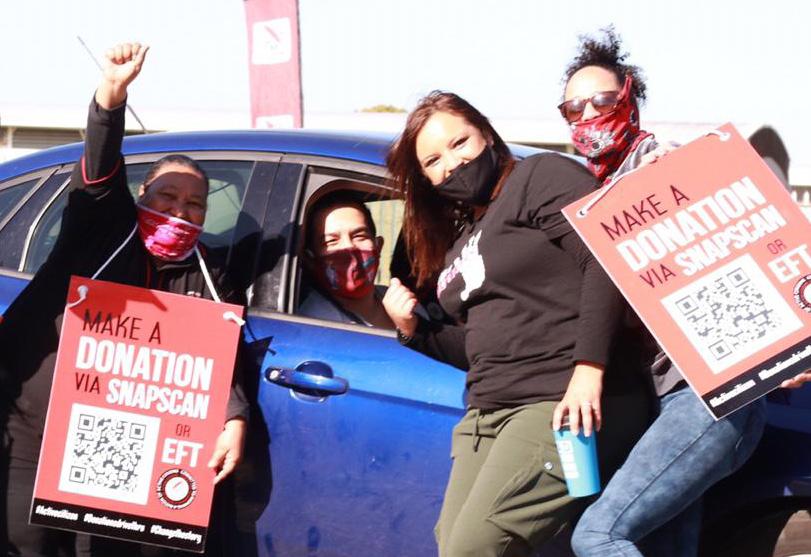
THE Community Chest’s Mandela Day launch of its Donations Drive-Thru Campaign was a wonderful success. Generous Capetonians made the most of lockdown restrictions by driving up and donating much needed warm clothing, blankets, non-perishable foods, furniture, books, games and cash to the organisation at the Retreat depot.
“We received everything but the proverbial kitchen sink,” joked satisfied spokesperson Desiré Goliath. “It was mind-blowing. We nervously awaited noon last Saturday but we needn’t have worried. Capetonians gave of their time and opened their hearts, embodying Tata Madiba’s spirit of service.”
Community Chest has been at the forefront of Covid-19 relief in communities across the country that have been rendered even more vulnerable since lockdown.
As needs increase, the organisation is maintaining the momentum with the launch being the start of an ongoing Donations Drive-Thru Campaign that serves as a bespoke
HOW YOU CAN
fund-raising initiative in any geographical area. We invite partners to collaborate with us and we will co-ordinate your event. This way we are stronger together in assisting our fellow South Africans as we help to change their story. “In this time of crisis, every DONATE Name of Account: Covid-19 Fund Account Number: 628 4873 6099 Bank Name: First National Bank Branch Code: 201 409 Global Number: 250 655 Reference: Name and Surname citizen who is more fortunate is looking for ways to help make a change”, says Goliath, “and we provide an easy way to help. You don’t even have to leave your vehicle to help feed or clothe a fellow human being. Just roll up, honk your horn, drive to the relevant windows to drop off your gift or make a cash donation, stop for a selfie, and be on your way, knowing that you have done your bit to provide a different narrative for someone in need.”
The campaign runs throughout the lockdown period and beyond.
Read more about the campaign at www.comchest.org.za
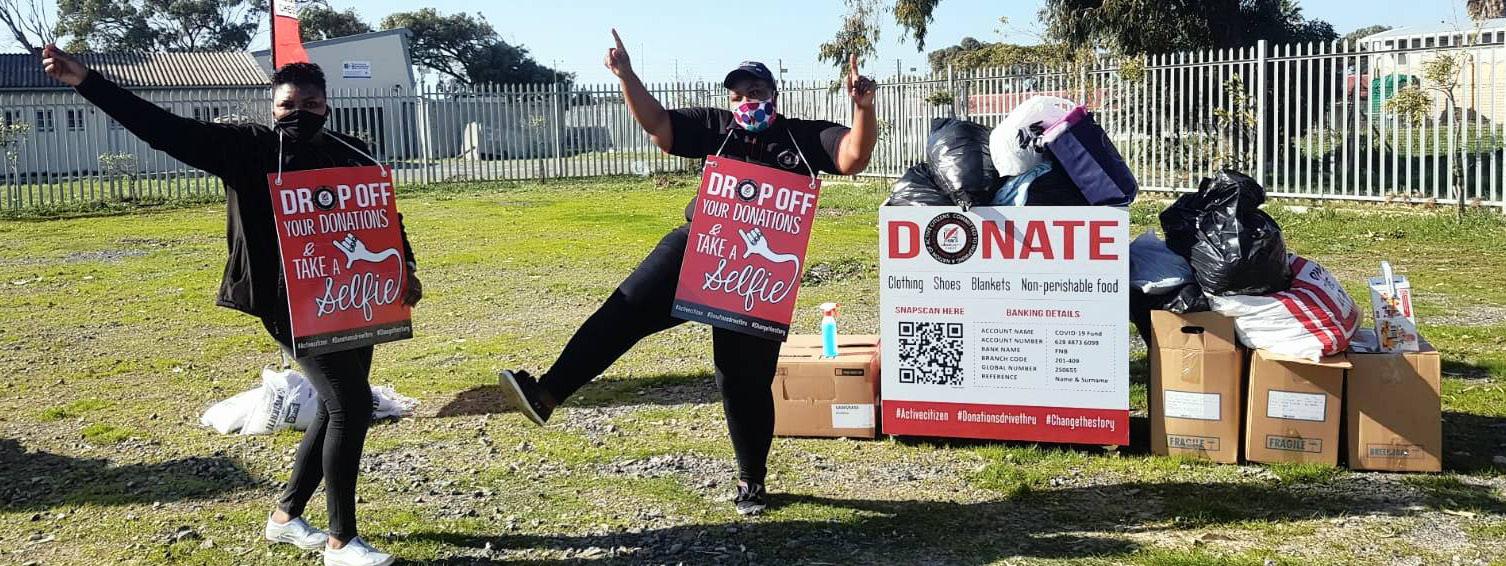
Spreading kindness to those in need
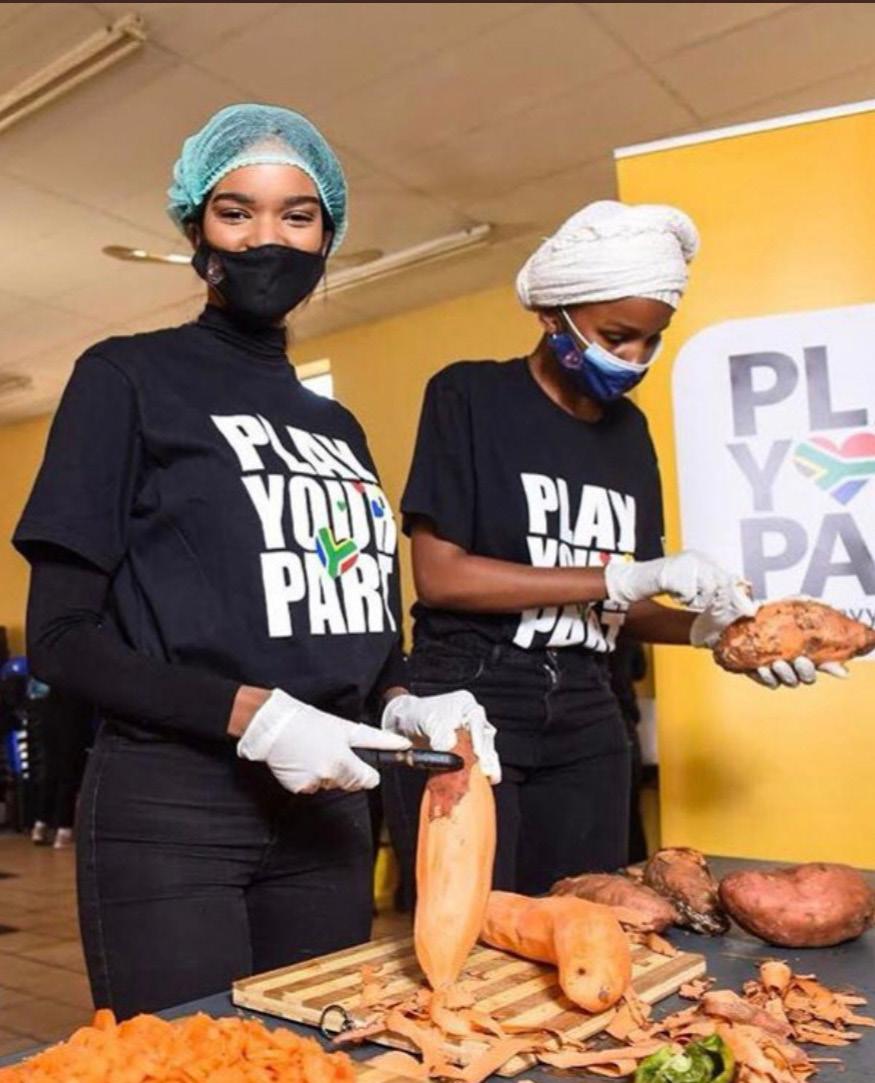
MaryAnne Isaac
CAROLYN STEYN
The concept is to leave scarves in parks, around trees, parking metres, tied around lamp posts on the same day. Scarves left for anyone who needs them all around our beautiful country. THE triumphant spirit of ubuntu permeated the air as noble hearts, donning colourful masks, gathered to bring a smile to the faces of the less fortunate, whether by helping paint a children’s home or putting a smile on a car guard’s face.
There’s no doubt Mandela Day was different this year compared to previous years.
However, the essence of the day – to take action, inspire change and make every day a Mandela Day – proved more important than ever because of the the coronavirus pandemic.
Many South Africans heeded the call to spread kindness and warmth despite the pandemic. A mask might have hidden the smiles but not people’s spirit of ubuntu.
The Ikemeleng Foundation in Diepsloot, Gauteng, saw the urgent need to feed children in the community, as schools were closed and many children were going to bed on an empty stomach.
Founded by two children, Zama Kunene and Relebohile Pebane, the foundation provides hot meals from their soup kitchen in Diepsloot every Monday to Friday.
Play Your Part ambassador Cindy Ross said the two children from her NGO, Diepsloot Mountain Bike Academy, and the NGO raised the funds to feed the children.
“For Mandela Day, we prepared meals for 300 children and got more than 600 children and adults. Fortunately, we had enough food for everyone.
“I am extremely proud of Zama and Relebohile for seeing a need in their community. Despite their own personal challenges, they are operating their community soup kitchen that feeds between 200 and 500 children a day.”
The Mandela Day initiative garnered support from Brand SA and Miss SA.
Another kind act was from philanthropist and “Arts Angel” Carolyn Steyn, who once again inspired South Africans to knit scarves and leave them in public places for the less fortunate to use.
“The concept is to leave scarves in parks, around trees, parking meters, tied around lamp posts on the same day. Scarves left for anyone who needs them all around our beautiful country,” said Steyn on Facebook.
Steyn is known for her 67 blankets for Mandela Day. Along with the scarves, there was also a note of kindness attached to each: “I am not lost; if you’re cold and you need me, please take.”
Another kind initiative was Girls4Girls South Africa’s gender-based violence webinar. The organisation educated women about abuse and helped them with information on what to do should they be in a violent situation.
Being kind towards someone less fortunate than you will be etched in the heart of the recipient forever.
Kindness is spreading sunshine, regardless of the weather. It doesn’t take much to be kind.

